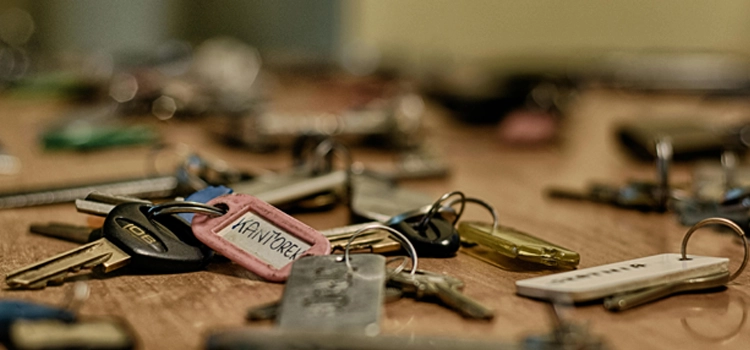Hotel Check-in Automation: Is It the End of the Front Desk?
You may already understand how automation can facilitate more efficient operations and communication. But while some aspects of your business, like review requests and channel management, are relatively easy to automate, others may require a bigger investment of time and resources.
Yet, enabling customers to check in and access their rooms without the need to interact with anyone at the front desk is key to combatting your staffing problems. And now you can do exactly this—with check-in automation that isn’t prohibitively expensive to implement.
In this article, we talk about:
- How to convert traditional locks to smart locks within minutes (without having to overhaul all your doors) with Operto Boost
- The top hotel automation trends in 2022
- The best tools for hotel check-in automation
Table of Contents
What is hotel check-in automation?
Want an operations tool that’s smooth and flexible?
What is hotel check-in automation?
Put simply, hotel check-in automation involves the use of technology to circumvent the traditional check-in process, enabling guests to begin their stays and gain access to their rooms without interacting with a traditional check-in desk.
This could mean that guests can check themselves in and pay using a self-service kiosk, or they can use another digital system to access their room—such as a code for a keypad or digital key sent to them via email or a guest app.
A mobile key empowers your guests to be more independent and allows them to enjoy their vacation on their terms.
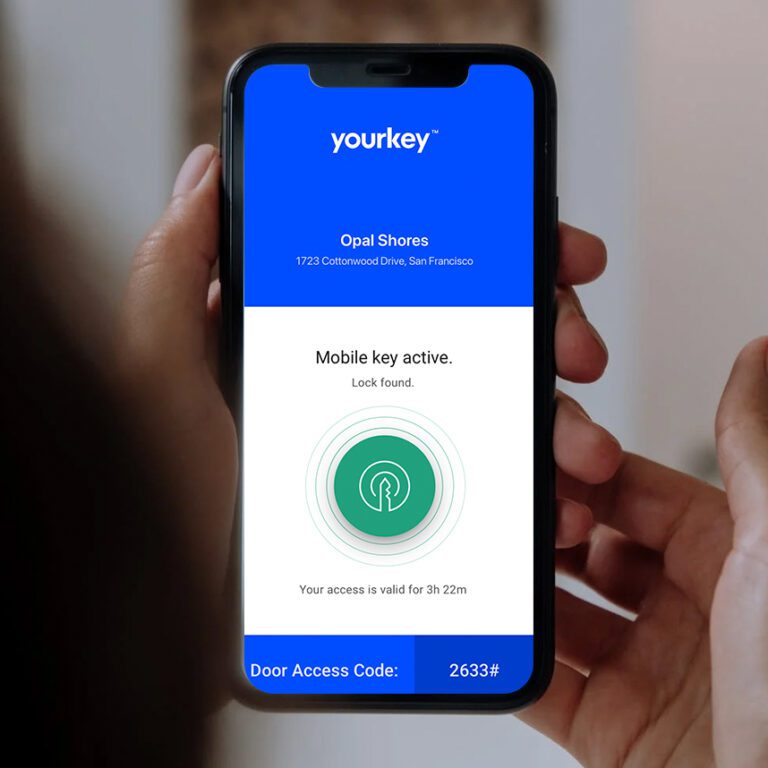
Why does your hotel need check-in automation?
The hospitality labor shortage is making it increasingly difficult to find and keep good employees that uphold your standards and provide an exceptional guest experience—with almost nine out of ten hotels reporting staffing shortages as of October 2022, finding ways to reduce your labor needs can take significant stress off your operations and management.
When you deploy even a couple of employees per shift to your front desk, you’re allocating precious resources where automation could take over. You need to find a solution that takes your dependence off staff members and allows you to automate processes.
Just like the emergence of plastic key cards in the 1970s revolutionized the hotel industry, we’re at another defining moment in hospitality history: Check-in automation. When you digitize the check-in process, you not only give your guests an easier arrival, but also cut down on staffing needs by reducing your dependence on those skilled employees that are now so hard to come by.
Automation in hotels can help you
- Eliminate the need for a front desk
- Reduce your dependence on trained staff to coordinate guest arrival
- Create a scalable operation
- Provide a superior and consistent guest experience
- Protect the safety and security of your guests and hotel
How can you implement check-in automation for the best ROI?
Check-in automation cuts costs, eliminating the need for front desk staff—and one way to achieve it is with a self-service kiosk.
Guests can use a self-service check-in kiosk in your lobby to provide their details and receive their keycard. That way, they no longer depend on the front desk, and your staff is freed up to address other pressing issues.
But check-in kiosks are inherently unhygienic and can force your guests into a line, where they might be left waiting on arrival and feeling frustrated.
Instead of replacing your keycard locks, you can upgrade them
A better way to automate check-in and give your guests a digital, frictionless experience, is with pre-arrival digital check-in on their mobile device. With no lines or hygiene issues, guests receive a code or mobile key to access their room—which they can do as soon as they arrive.The problem with this frictionless check-in model, though, is the need to replace all your keycard locks. But, there’s an easier way to implement check-in automation, even with a decades-old hotel door lock system.
Operto Boost is a cutting-edge technology that allows you to modify your current locks in minutes, saving the time and money it would take to replace them—so it’s a cheaper, faster, and easier way to achieve check-in automation.
And with your locks online, you can now start improving the guest experience and your internal operations even more.
Centralize your access management for total visibility
By connecting your smart locks to a centralized manager’s dashboard, you can easily see who’s entered each room and when. Also, you can connect your smart locks with your PMS, and use an operating system to auto-generate unique access codes or digital keys for each guest as soon as their booking is confirmed.
At the same time, you can share your digital guidebook, manage online check-in, and provide all the key access information for guests to arrive completely independently.
This is true check-in automation—no lines, no waiting around, and minimal staff required.
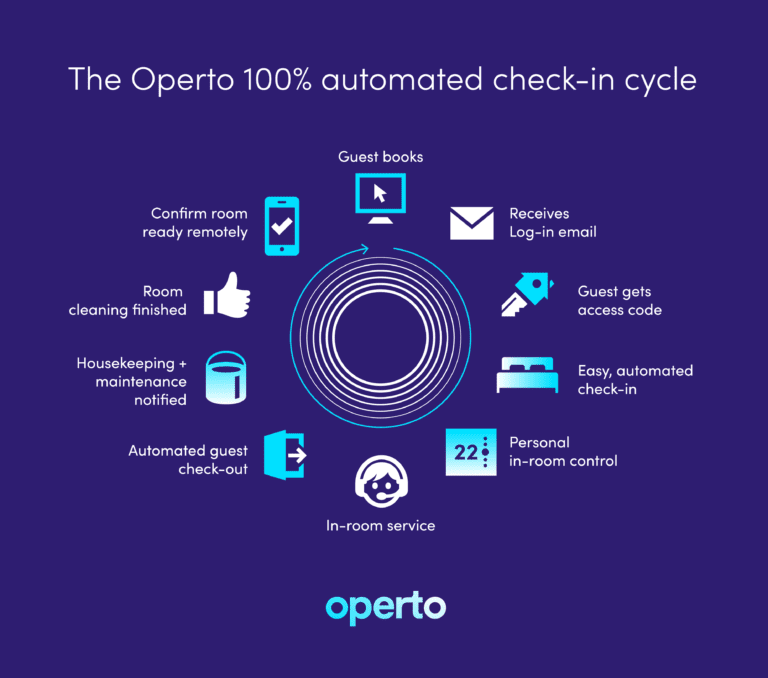
What are the latest technology trends in the hotel industry?
The latest trends in the hotel industry aim to reduce staffing needs, automate processes, and create an experience that’s frictionless for your guests and effortless for your staff to provide. See how these five trends can take the workload off your front desk and provide a modern, hassle-free stay.
1. Smart lock solutions
Smart locks are one of the most efficient ways to upgrade your hotel operations to a more streamlined model that enhances the guest experience while reducing your dependency on staff. When you no longer have to staff a front desk, you don’t have to worry about constantly searching for skilled hospitality employees that are hard to come by and turn over quickly.
With Operto Boost, you can upgrade your existing keycard locks to make them Bluetooth-compatible. That means you can offer contactless hotel check-in without having to spend thousands of dollars replacing all your locks.
2. Self check-in with automated ID verification and screening
We’ve spoken about the benefits self check-in can have for your guests and productivity, but it’s also an added safety measure for your hotel. When you offer digital check-in with a tool like Operto Guest, you can also set up automated ID verification and guest screening using your guest’s check-in details.
3. Hospitality experience platforms for pre- and in-stay comms
The modern guest expects you to be accessible at the touch of a button, which is why you need a hospitality experience platform. For example, Operto Guest gives you seamless, two-way messaging within a convenient mobile-optimized web app for guests and a consolidated dashboard for you and your team.
The platform allows you to send guests all the information they need before their stay, including digital guidebooks (discussed below), arrival instructions, and access codes. Plus, it gives guests instant access to you during their stay so they can report an issue in their room or request an extra clean without having to call the front desk.
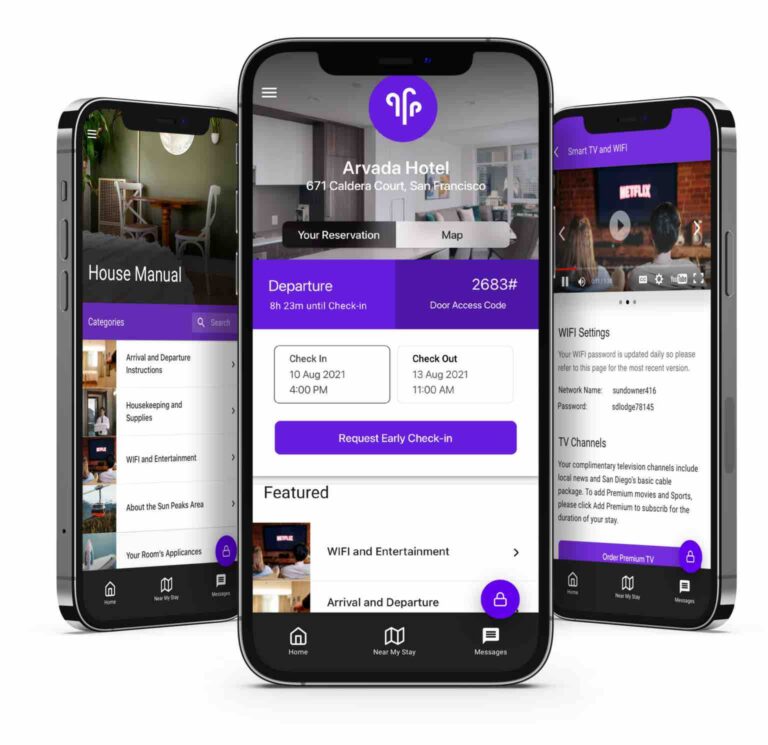
4. Digital guidebooks to make guests truly independent
A big trend in hospitality is using tech solutions to minimize guest communication—since guest inquiries can eat up so much of your day and staff resources, find ways to cut back on guest questions by getting ahead of your customers and giving them all the information they need in advance.
For example, a digital guidebook acts as an all-in-one resource that can help replace your front desk and concierge. It makes guests more independent by giving them access to valuable information and allowing them to organize their stay on their terms. This approach is key when it comes to exceeding hotel guest expectations.
In your digital guidebooks, you can include helpful information about your hotel and services, local recommendations, and links to local partners’ websites, where guests can schedule tours and make reservations.
5. Automated task scheduling for turnover efficiency
Your hotel is only as successful as its processes, which is why automated task scheduling is such a key trend in the hotel industry. Use an automated task scheduling and schedule management tool so you don’t have to lose time and resources allocating cleaners to rooms, making sure schedules are accurate, and keeping track of task status.
When you pair this type of solution with automated check-in and check-out, your staff are constantly up-to-date on room and task status, so it’s easy to prioritize and avoid missed cleans. Be sure to use software that can integrate with your PMS so none of your reservations slip through the cracks.
The 6 best contactless check-in and kiosk systems for 2022
Operto Guest
Operto Guest enables your customers to get important information, like room access codes and details about your hotel and the local area, in advance, and to digitally check in pre-arrival.
Aside from mobile key capability, Operto Guest allows you to share digital guidebooks, promote upsells and other services at your hotel, include essential information about your rooms, and send direct messages to guests.
As with most online, smartphone-based solutions, this does require guests to have a smartphone. But guests don’t have to download another app to their phone—they can access the platform via a mobile-optimized web app.
But even if a guest’s phone runs out of battery or stops working on the day, the Operto portal can be accessed via any browser.
Perhaps one of the most powerful aspects of Operto is that you don’t have to overhaul your locks to set it up, as Operto Boost allows you to modify your existing keycard locks and transform them into contactless smart locks.
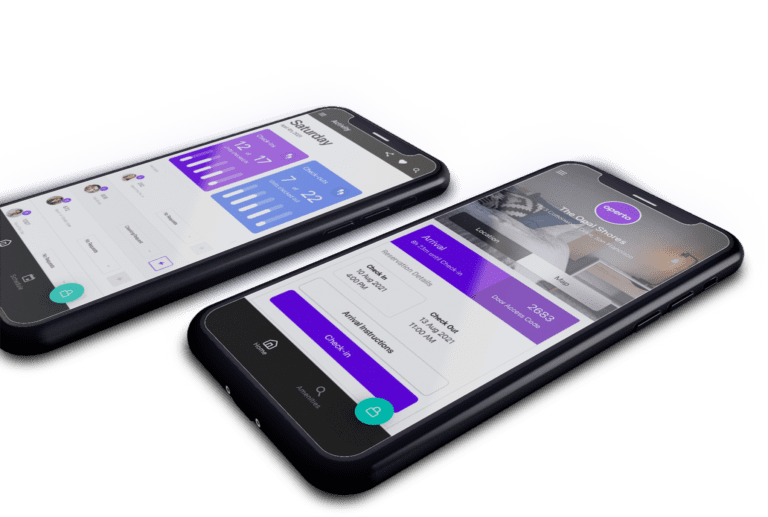
Pros
- Lets you offer guests contactless check-in via their smartphone, as well as send them access codes and other helpful information, like arrival details and digital guidebooks, before their stay
- No need to overhaul your current locks—the majority of locks can be modified into smart locks with Operto Boost
- Integrates with a range of devices including thermostats, smart locks, and noise monitors, so you can enable guests to perfect their environment and ensure everyone is happy
- Works for staff and guests, allowing you to keep everything within one, single, connected system
- Completely contactless
- Guests access their access code or digital key via a convenient web app
ImageHolders Kiosk
The ImageHolders Kiosk is an automated, 24/7 service kiosk that enables guests to check in and out efficiently, as well as plan ahead by viewing hotel menus and ordering meals. With this kiosk, guests can also book a taxi or view other services at the hotel. The kiosks accept payments, deliver keys, and allow guests to drop keys off when they leave, too.Pros
- Obvious upon arrival
- More of a physical “reception” feel
- Can be used to request customer service
Cons
- Still requires the guest to stop and check in on arrival
- The guest doesn’t hold the information on their own device once they leave the kiosk
- Not contactless (and, therefore, less hygienic)
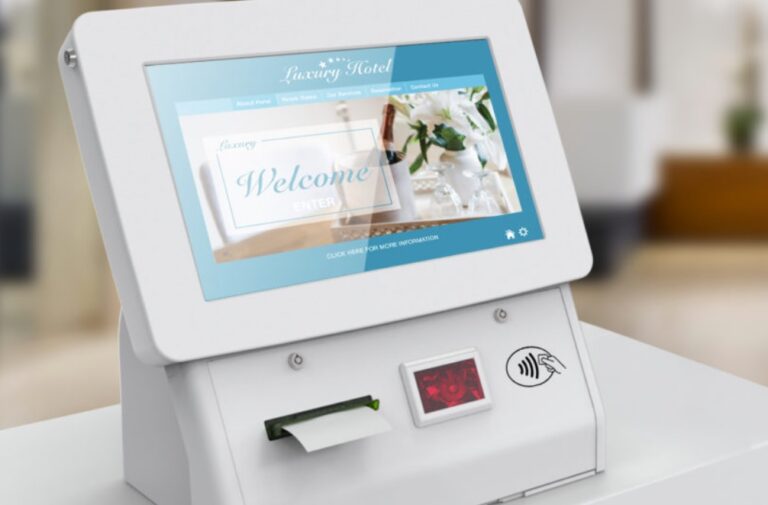
Virdee
Virdee offers virtual guest reception software both in the form of a mobile app/mobile web app and a kiosk solution. You can provide digital keys with the mobile solution, and the kiosk complements the mobile guest solution if you prefer physical keys. It allows you to conduct identity verification, accept all major cards and mobile wallets for payment, capture guest signatures, offer room choices and upgrades, and manage guest inquiries for special services and upsells.Pros
- Pre-arrival communication
- Physical and mobile key options
- Guests can access amenities and upsells on the app during their stay
- Remote assistance capability
Cons
- You pay extra for mobile key management and guest verification
- Not entirely white-label (you have to pay extra to fully customize the guest app)
- Can take over two months to set up and implement technology in your hotel
- Damage caused to kiosks not covered under Virdee’s warranty
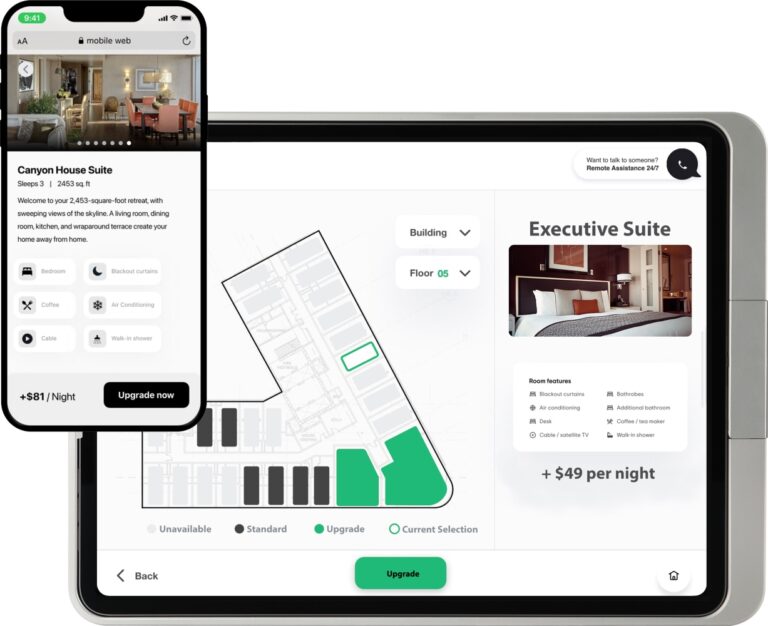
Mews Guest Journey
Mews offers an “all-in-one” concierge app and check-in kiosk. It allows guests to check in and check out, access in-room services, make payments, and send messages on one convenient platform. Guests receive an email ahead of check-out so they can leave when they need to and drop off their keys at reception.
Pros
- Connects to Apple Wallet so guests can pay easily and quickly
- Allows guests to access a considerable number of services and options
- Direct guest messaging
- Offers a wide range of integrations
Cons
- Guests still need to drop keys off at reception when they check out, requiring you to maintain a staffed front desk (unless integrated with a separate keyless access system)
- Mews recommends connecting its platform to its self-service kiosk, which requires additional installation and time spent for guests at check-in
- Mainly suitable for hotels with 20+ units
- Online reviewers on customer service
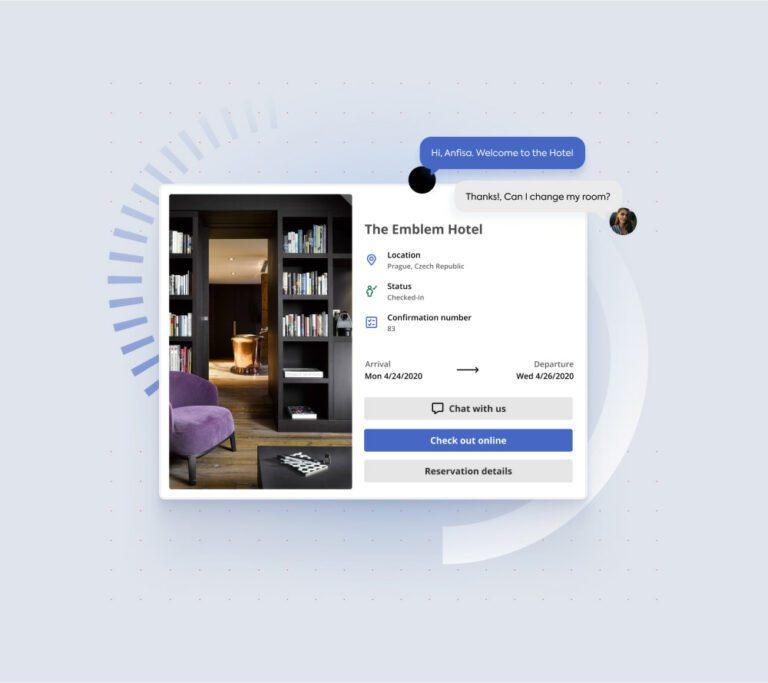
Revinate Ivy
Previously Ivy by Go Moment, Revinate Ivy is a “smart concierge” with AI backed by Google that you can use to personalize guests’ experience. You can use it to communicate with guests before they arrive, help guests check in, offer assistance during their stay, and smooth out the check-out process. It manages routine guest inquiries, and has the capability to customize upsells. Aside from its webchat capabilities, Ivy lets guests pay for meals, bills, and more right on their smartphone.Pros
- The AI element provides personalized service and answers, which it claims improve with each new guest
- Doesn’t require guests to download an app (text messaging capability)
- Payment functionality (compatible with Google Pay and Apple Pay)
- Analytics to help you improve your guest communication
Cons
- AI can come off a little cold and impersonal if it doesn’t work as expected
- Doesn’t integrate with other in-room smart devices, such as thermostats or smart locks
- Doesn’t offer a contactless access option
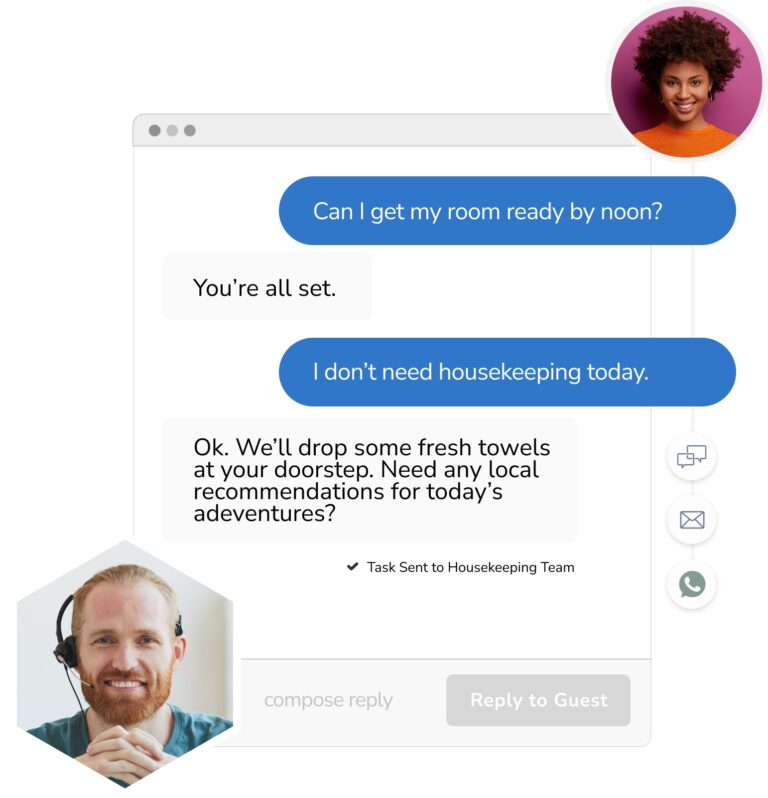
Use a hotel self check-in system to optimize your processes and exceed guest expectations
An automated hotel reception and digital check-in process can help you eliminate the need for a front desk (and employees to staff it) while still exceeding guest expectations.
This is because, when you don’t need someone on your team to check guests in and give them their room keys, you’re able to allocate those resources elsewhere, meaning less reliance on staff and more support where you’re spread thin.
If you want to replace your front desk with smart locks and contactless access without having to overhaul all your existing locks, use Operto Boost. It’s a simple solution to streamlining your hotel management and operations, delighting guests, and minimizing your reliance on staff.
More Articles
Want an operations tool that’s smooth and flexible?

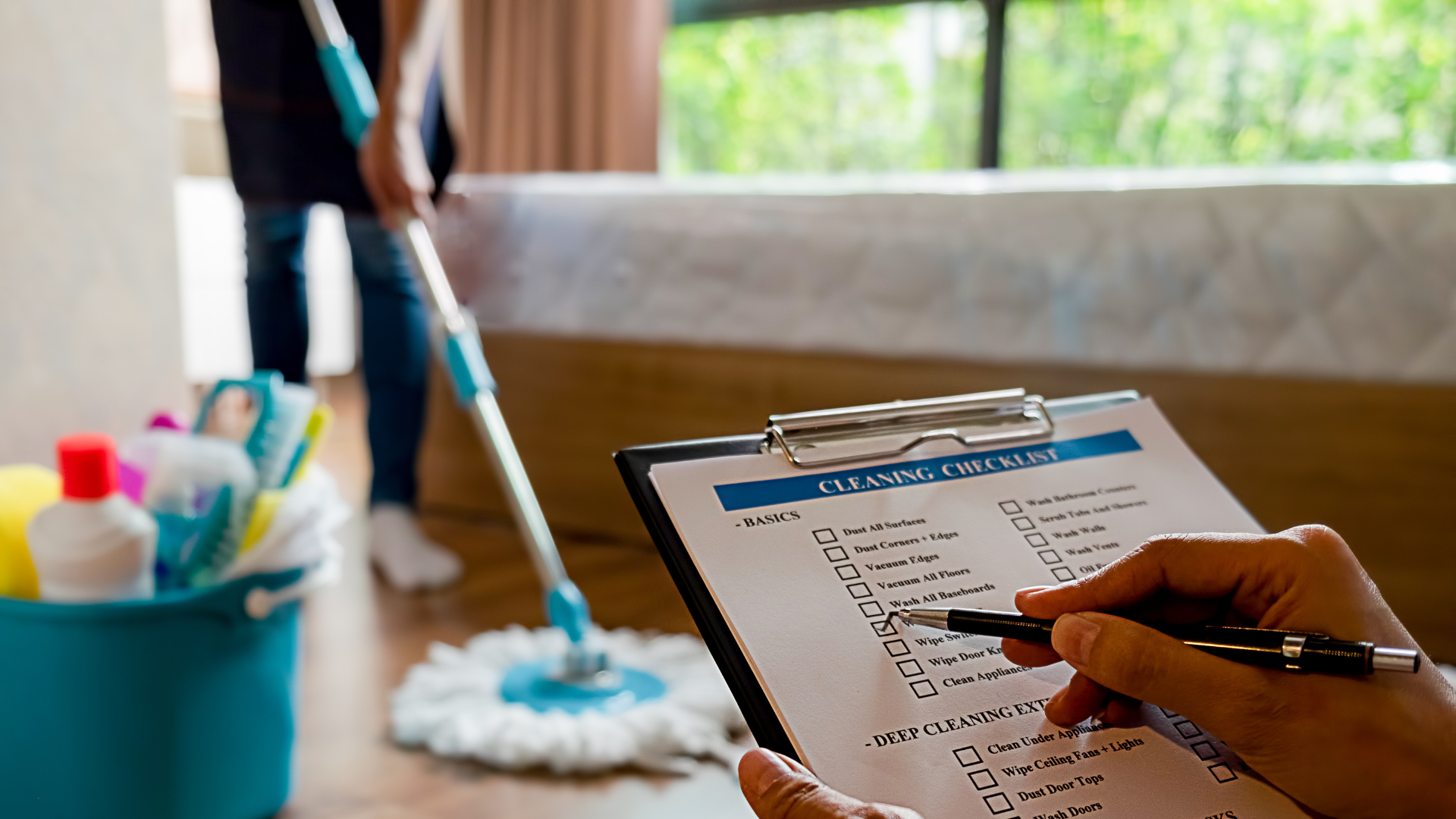
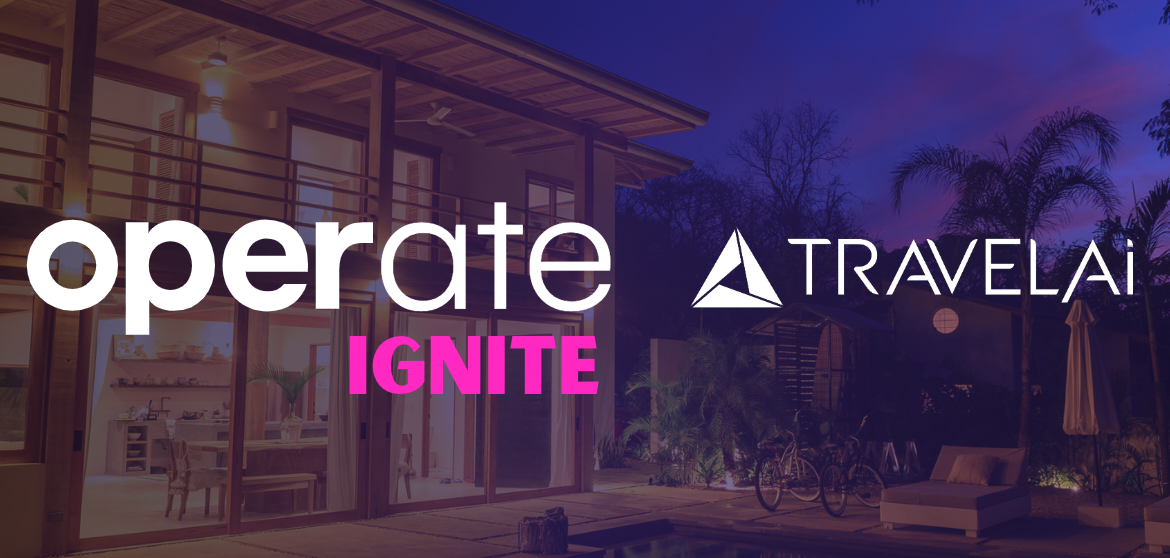
![How to Create an Airbnb Welcome Book in 2025 [+ Free Template]](https://operto.com/wp-content/uploads/2024/03/shutterstock_1891478185-scaled.jpg)
